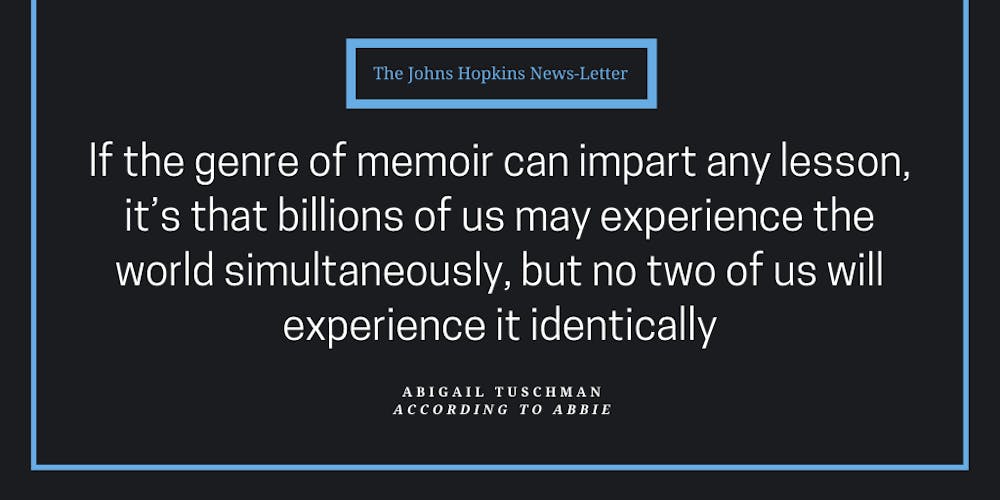
Since the start of high school, I thought the idea of college was alluring, for more reasons than the picturesque red brick and the independence it promised. I wanted a space to grow intellectually rather than regurgitate facts about U.S. history. I wanted classes where my beliefs would be challenged and where I would learn from peers with backgrounds different from my own. What I sought in college, I have found in one of my classes this semester.
I am taking a course called The Memoir: Personal Experience in Health Disparity. From the name alone, I knew I would enjoy it — The Memoir is nestled in the intersection of writing and medicine, the two disciplines I hope to pursue in life.
So far, we have covered texts like When Breath Becomes Air by Paul Kalanithi, a neurosurgeon diagnosed with stage IV lung cancer in his 30s, and Hunger by Roxane Gay, a feminist who began overeating to cope with the trauma of being gang-raped as a child. We have had guest speakers such as the medical director of the Hopkins Fertility Center Dr. Mindy Christianson and the New York Times bestselling author Dr. Damon Tweedy. We have discussed terminal illness, racism, infertility, obesity and sexual assault. As students, we have been asked to confront our biases and acknowledge the systemic issues that plague the health-care industry. It may not be a class for the faint of heart, but it has been illuminating.
If the genre of memoir can impart any lesson, it’s that billions of us may experience the world simultaneously, but no two of us will experience it identically. I am continuously reminded by my readings for The Memoir that I will be stuck in this body until the day I die, with every moment and interaction colored by my identity.
I am grateful for my body. It’s the only one I have ever had. Barring any reincarnation, I will never know what it’s like to live in someone else’s skin. But I do know that the society I inhabit was built for bodies like mine, and it is all too easy to forget how hostile and unforgiving it can be to others.
I am sheltered by my body. I don’t worry about holding my boyfriend’s hand in public or jogging in broad daylight. When I travel, I don’t question whether a city has taken my body into consideration. When I go grocery shopping, I don’t get side-eyed for my size or receive unsolicited diet advice. When I leave my house, I don’t anticipate someone misgendering me or muttering slurs at me or making me feel as if my body is not enough. I am privileged, and it shows in all the experiences I haven’t learned to expect. I can try to imagine, but will never truly comprehend, the exhaustion my body has spared me.
I don’t say all of this because I want a pat on the back or to be congratulated for realizing the world does not revolve around me. I’m saying all of this because we are not taught this lesson in physics, biochemistry or calculus. Those subjects are important for pre-med students, but they should not eclipse humanities courses like The Memoir. The guest speakers in my class have taught me that being a good doctor goes beyond diagnosing and prescribing — it requires empathy, humility and the ability to listen to the patient’s narrative. I don’t think those traits can be learned from lectures on centripetal force or disulfide bonds.
Medicine is personal. I don’t care that the word “clinical” has come to mean detached. When doctors ask patients to disclose their histories and bare their bodies, it becomes personal. Doctors are in the business of treating people and it’s a business riddled by disparity. To be part of the solution, it’s not enough to vow to treat everyone equally and never do the work to understand how we are different.
Classes like The Memoir are necessary to expose pre-med students to stories of bodies different from their own. I have not only learned from the books and the guest speakers, but from my professors and classmates. While discussing memoirs, we have shared excerpts of our own. It is everything a college humanities course should be. I hope more pre-med students have the opportunity to take a class like it and to learn what their bodies have prevented them from seeing.
Abigail Tuschman is a freshman from Fort Lauderdale, Fla. majoring in Writing Seminars. Her column documents the ups and downs of her unusual first year of college.





